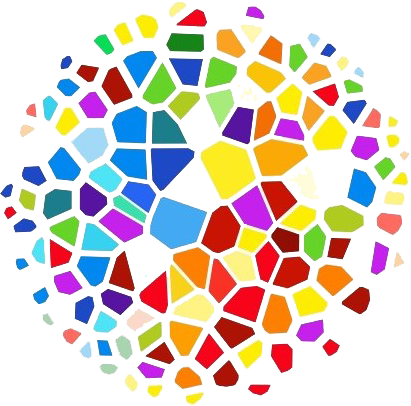The Deep River Principle
For years, I’ve been in private practice, coaching leaders and executives. I could blame introversion, a packed schedule, or a distaste for self-promotion. Really, though, it is about my deeply held belief that “a deep river doesn’t make noise”.
But here’s the thing: noise attracts attention. Noise may create an illusion of success and quality, and sometimes be mistakenly taken for the two.
If you tune out the noise, how can you tell who is the real deal? Although this article is about coaches, the Deep River Principle applies to many other professionals as well.
Of course, credentials matter – PCC, PhD, MA, and such. Certainly, the number of years of experience is a factor. However deep expertise isn’t necessarily directly correlated with titles or experience. Consider instead the following five dimensions:
1. ‘Guaranteed results’ vs. ‘guaranteed progress’
Results may be a factor of harder work, greater talent, better luck, additional skills, or timing. Listen whether the coach is transparent about this, regardless of past successes. Look for a practitioner who can diagnose well and help you make meaningful progress. Results are always conditional.
2. “I’m your only ticket out” vs. “let’s see what you already have”
Many high-achievers already possess the talent and expertise they need; what they may lack is clarity or a framework for action. A great coach won’t claim to be your savior. Instead, they’ll help you refine and apply the wisdom you already have. Once you grasp where you want to go and why, the how is often a matter of logistics. Anyone who says to a client “you're nowhere without my system” is just making noise.
3. ‘Diagnostic props’ vs. ‘deep diagnostic expertise’
Some coaches push on clients what I call “props” - assessments, systems, and proprietary models before they even understand the client. Occasional ‘props’ can be useful, for example, for providing additional data points, but they should support—not replace—expertise. Teaching clients to rely on their intellectual, emotional, physical, and spiritual compass is where real expertise of a great coach comes in. As a Maori explorer captain put it, “A compass can go wrong. The stars never do.”
4. ‘More data’ vs. ‘discernment’
Decisions can be difficult because options are on par – there is no choice that is clearly better than the others, but each is a better fit on different dimensions. Often, the problem isn’t ‘missing data’; it’s knowing what matters. For example, understanding ‘fit’ is not necessarily about ‘more data’, but about making sense of the data that is already there. A skilled coach won’t overwhelm you with getting more and more data points, but instead will focus on discernment: cut through the noise and focus on what’s relevant.
5. ‘Don’t fall behind’ vs. ‘Invest in what matters’
If someone is selling you fear, making you feel that you’re inadequate, that you’re being left behind, or that you’re missing out, run in the other direction. A great coach never preys on insecurity. Instead, they will explore with you where to invest your time, attention and energy for the return that is most meaningful to you.
Bottom line: As you deal with uncertainty, you don’t need more noise – you need a sharper view.
Deep coaches help you refine your thinking, clarify your decisions, and leverage what you already know to move through complexity with confidence. They don’t drown you in data, assessments, or hype. To move faster, make smarter decisions, and lead more effectively under the conditions of uncertainty, team up with experts who help you cut through the noise and sharpen your own instincts to make meaningful progress.
With gratitude,
Alina
Dr. Alina Bas, PCC
Organizational Psychologist, Executive Coach & Strategist
Adjunct Professor, NYU Graduate School of Arts and Science
https://AlinaBas.com
Alina@AlinaBas.com
EXPERIMENT
I want to share a powerful concept with you: the ‘8-minute idea’, popularized by Simon Sinek. The premise is simple: just 8 minutes of thoughtful connecting with a friend or a loved one can improve one’s well-being, lower stress level, and ease loneliness. Discuss the ‘8-minute idea’ with important people in your life. Then, instead of the usual “How’s everything? Let’s catch up soon!”, use the code phrase “Do you have 8 minutes?” when you can really use a friend. This small change may make a big impact.
Do you think it will work, or do you think people will still be as shy about asking friends for ‘8 minutes’-but-sooner-rather-than-later as they are about asking to ‘catch up sometime’? Let me know what you think.
NEWS & UPDATES
I have recently delivered a custom-designed talk on best practices and trends in Executive Development, and explored ways to enhance the host organization's current practices . This organization already offers world-class Executive Education. In over 20 years of giving talks, workshops and presentations, this was probably the first time I did not write out verbatim what I was going to say, did not over-rehearse or memorize the script. Instead, I shared content that was well-researched, well-prepared, and that I already knew inside and out. The reward? An insightful and heartfelt conversation during the Q&A with brilliant participants. They stayed engaged, curious, and asked deep questions. This is the type of work that I live for. Is your company’s HR/OD department interested in a talk on best practices in Executive Development? Let's talk about it.
NEWSLETTER
Did a friend share this with you? Please sign up for my newsletter and get your own free monthly-ish idea boost. Let's stay connected!
*****
RECENT ARTICLES
Effective alternative to ‘searching’
Create alignment for 2025
Making a wish when torn beetween outcomes
What will you remember?
How will things end?
The Marvin Syndrome: Brilliant & Underutilized
Choose your mess
An antidote to loneliness
What comes after crisis
A fresh start
Vonnegut's Take on Your Career
How to talk to a person in crisis
Tiny interactions, huge impact
Our New York love story






